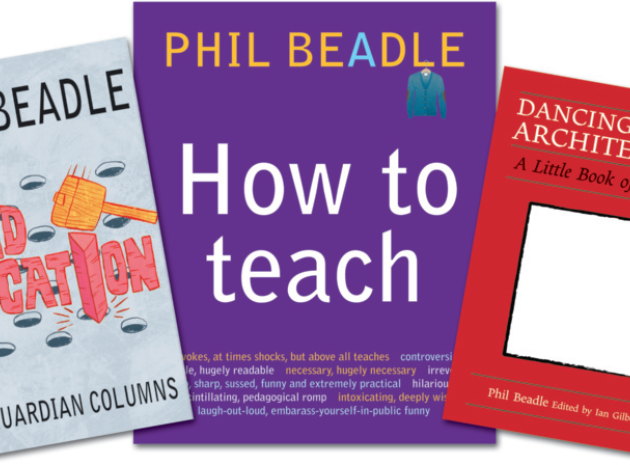Will national ranking of 11-year-olds really help them become ‘more successful’ going forwards? Not according to those with experience, says Phil Beadle...
Will national ranking of 11-year-olds really help them become ‘more successful’ going forwards? Not according to those with experience, says Phil Beadle...
My summer holidays in 2012 were spent as a part-time English teacher in a school on Sydney’s North Shore. On an accelerated path towards a sadly inevitable divorce my class and I got the honeymoon in early; the boys welcoming me to the extent that they didn’t bother with routine expressions of distrust. One of them, Harry, gave me the most generously spirited symbol of acceptance I’ve ever received. Caught short after a lesson, I asked in squealing desperation,
“Harry! Quick! Where do the teachers go to the toilet round here?”
“Oh, you’re one of us now, sir: you’re allowed to go in the boys’.”
An intelligent and kind young man.
Glenno, his real teacher, told me he was likely to come first in English in the whole of New South Wales. Aghast at the concept, I queried it:
“The kids are given a number?”
“Yeh, mate. ATAR.”
“What’s ATAR?”
“Australian Tertiary Admission Rank: you get a number between 0 and 99.95 that measures your performance relative to the other students in your year; it goes up in increments of 0.05. A student who gets a score of 90.00 is in the top 10 percent, a student who gets a score of 1.00 is in the bottom one percent; a student who gets 0.05 is in the bottom thousandth.”
“And Harry is at the very top? How does he feel about it?”
“Ask him.”
I did. And here are the edited thoughts of an intelligent and kind young Australian on a system that Nick Clegg is proposing we adopt for British primaries:
“Harry, are you motivated by being ranked against other students?”
“I can't buy the motivation aspect. Most kids who are doing well basically know they are.
Also, I’d hope that we have less perverse personal reward mechanisms (like happiness).”
“Are there any arguably negative outcomes?”
“If anything, it discourages collaboration between students – many people aren't particularly competitive, but some become reluctant to share work or offer advice/ideas.”
“How about unequivocal negatives?”
“I don’t know that you gain any useful information by being told that you are placed towards the bottom: from what I’ve seen it can be incredibly dispiriting to be consistently placed poorly. That’s the point at which people tend to get disenchanted with the whole process, and the trajectory after that isn't upwards.”
“How does it affect the culture of schools down under?”
“If the metric of success is rank, then improvement within the year group is a zero sum game. Masters will also inevitably encourage students to shift their focus towards the competition ‘outside.’ Even ignoring the socio-economically charged nature of these exhortations – somehow it’s always the upwardly mobile that we ought to fear – it still returns to competition. The real world is competitive. I get that. I just don’t buy that we need as much of it in schools, or so early.” “Surely it must feel good, though, for people like you, to be at the top of the rankings?”
“You’d think so. But it’s easy to lapse into arrogance when you’re consistently told that you’re the best at that subject and, more significantly, that everyone else is worse. It reinforces an immensely unhealthy sense of superiority. You aren’t just quite good at something; you’re the best at that subject.
To some people that apparently makes you unassailably better, and an instant authority on the subject, which, obviously in no way reflects reality. It feels petty to whinge, but being constantly treated with deference and essentially undue respect gets tiresome. A relatively high rank also comes, tacitly, with the obligation to maintain it. Even if you are indifferent to academic success, you become the metric by which everyone else measures their own. In sum and in brief, I think in a world without any sort of ranking system my life would be more pleasant.” Harry’s thoughts on the costs of the ‘weird fetish’ of ranking are, I would argue, rather more sophisticated and nuanced than the deputy prime minister’s. Strangely, given Harry’s youth, his is the voice of bitter experience, which tells him that ranking students decreases collaboration, causes negatively branded children to switch off, constantly paints ‘the other’ as a rapacious competitor and negatively affects the psychological well being of even those who
win the game.
Nick Clegg’s proposals seem, in comparison, rather callow and undereducated I think; a grasped-at policy that hasn’t even undergone the perfunctory rigours of being mapped out on the back of his, now somewhat over-scribbled upon, fag packet.










